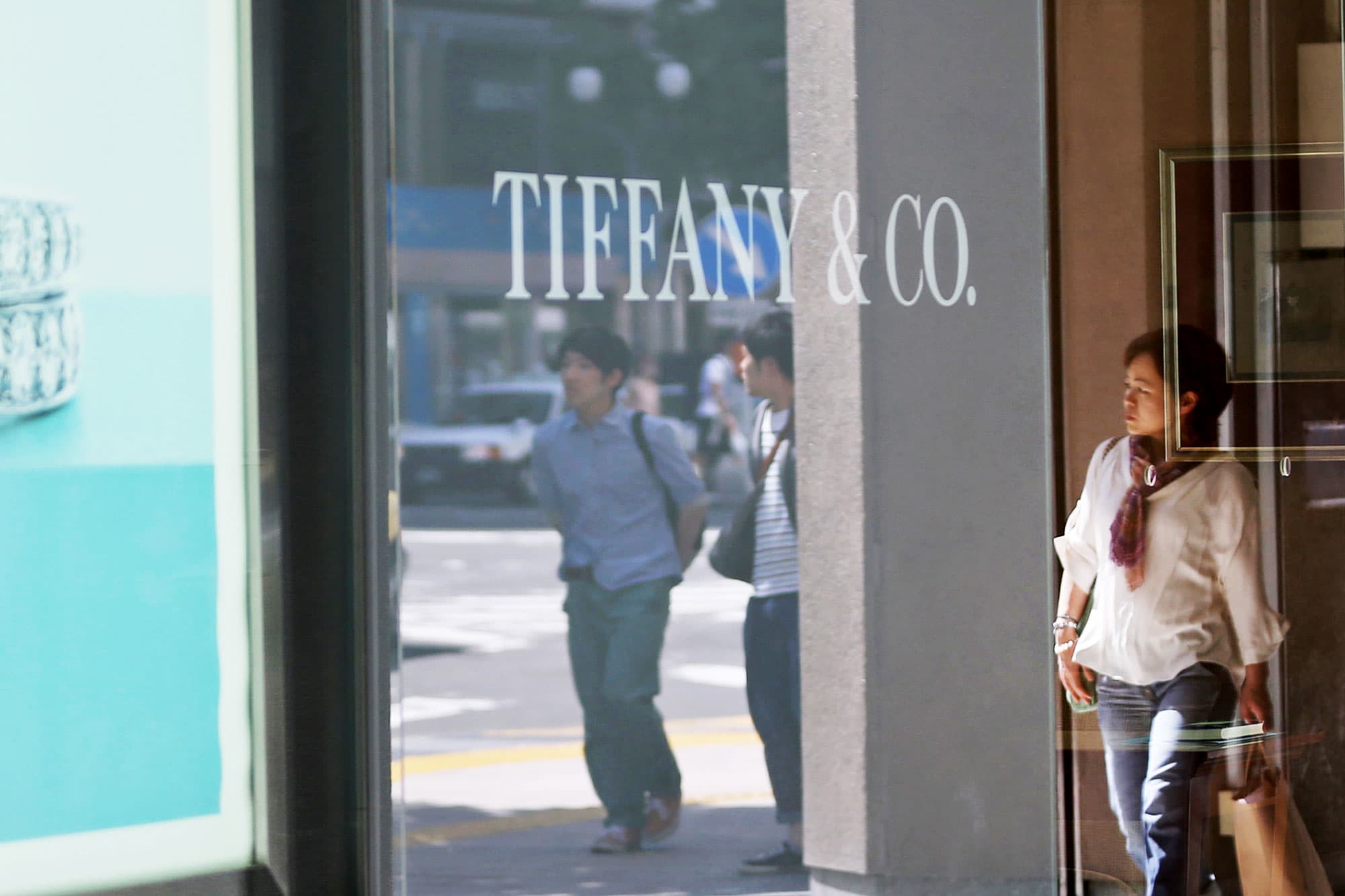
A pedestrian passes a Tiffany & Co. location.
Yuriko Nakao | Bloomberg | Getty Images
Tiffany cut its profit outlook for the year after the luxury jeweler blamed “dramatically” lower spending by tourists worldwide for missing quarterly same-store sales estimates on Tuesday.
Chinese tourists, who account for more than a third of global sales of luxury products, are spending more on home turf, encouraged in part by government efforts to fuel consumption by cutting VAT or import duties. At the same time, the number of visitors from China to the United States fell in 2018 for the first time since 2003.
The company said that tourist-related sales in the Americas were down about 25% from year ago, with sharper declines among Chinese tourists.
Tiffany said it now expects earnings per share to rise by a low-to-mid-single-digit percentage, compared with mid-single-digit growth it had forecast earlier.
The company said the forecast accounted for a number of factors including a stronger dollar as well as tariffs increasing on jewelry the company exports from the United States to China to a new level of about 25% on average. Tiffany has decided not to meaningfully increase retail prices in China for now.
Shares of the company were down about 3% in early trading as the company’s comparable-store sales, excluding the effects of currency exchange rates, fell for the first time in nearly two years.
Comparable-store sales declined 2%, while analysts on average were expecting a 1.16% drop, according to IBES data from Refinitiv. Including the impact of currency fluctuations, sales fell 5%.
“Our first quarter results reflect significant foreign exchange headwinds and dramatically lower worldwide spending attributed to foreign tourists,” Chief Executive Officer Alessandro Bogliolo said.
For the second quarter, the company expects a decline in net earnings per share, largely reflecting continuing sales pressures from lower foreign tourist spending.
Relations between the world’s two largest economies have nosedived in recent months due to a bitter trade war. After warning Chinese students and academics on Monday about risks involved in studying in the United States, the Chinese government widened its warning to include Chinese companies and tourists a day later.
The company’s net income fell 12% to $125.2 million, or $1.03 per share, in the first quarter ended April 30. Analyst were expecting the company to earn $1.02 per share.
Net sales also fell to about $1 billion, missing the average analyst estimate of $1.02 billion.












